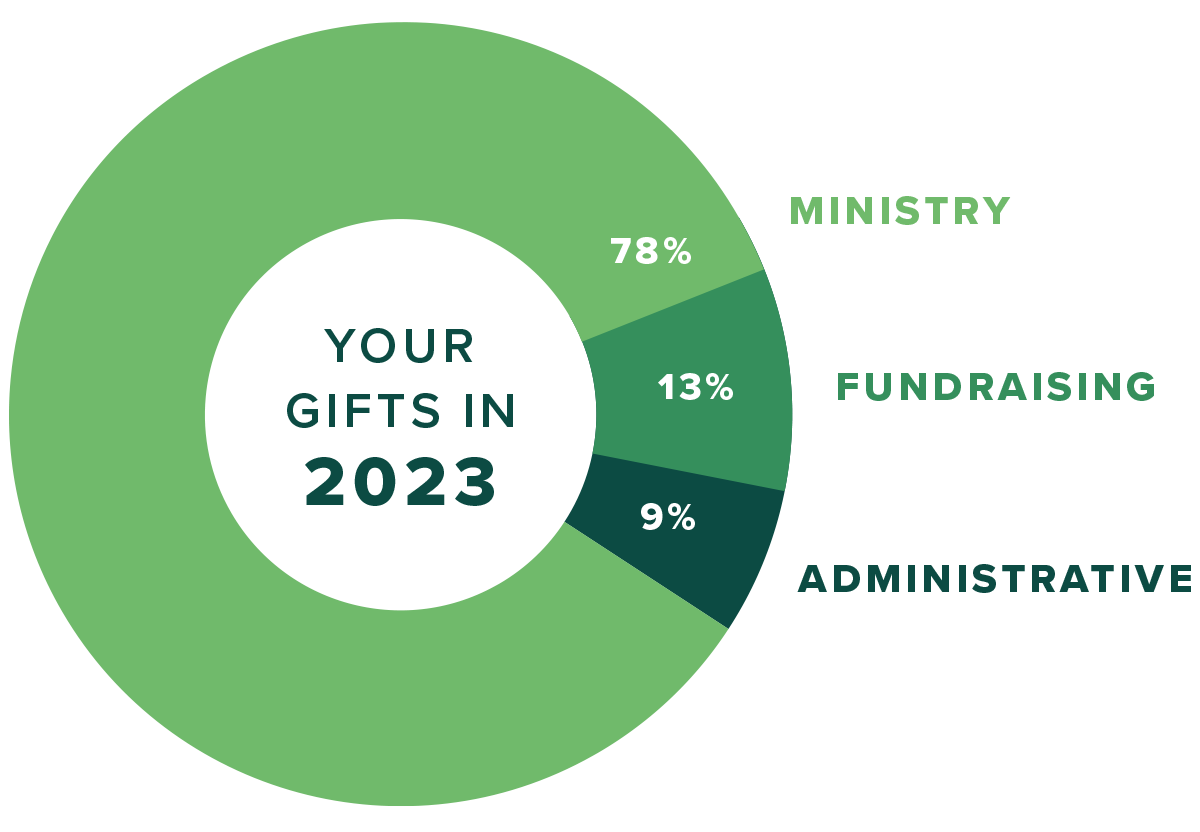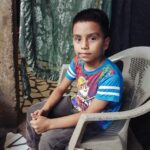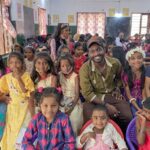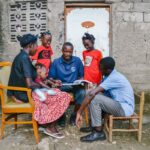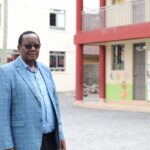In the eyes of the kids at a Hope Center in Kenya, all of the adults who help out there are their “teachers,” even if they aren’t teachers by profession. Find out why…
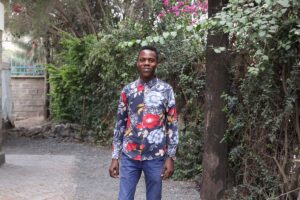
Hope Center leader Kelvin says all the kids there know that the Child Champions are their mentors, and they can learn a lot from them.
A visit to Syokimau Hope Center in Nairobi, Kenya, leaves one with good memories. As you step into the center, a feeling of calmness, love, peace, and tranquility settles into you.
Even the security guard at the gate is kind, humble, and welcoming.
The OneChild program is held here on Saturdays, and it’s busy as kids living in poverty arrive in the morning.
The program begins with playtime, and the kids get into their respective teams to compete in different games led by their Child Champions.
Kelvin, the Hope Center leader, says the games help ease the kids from any tension accumulated over the week.
“We begin the day with games because we are intentional about impacting the lives of these kids, and this cannot happen if a child is still tensed up because of something that happened at home or at school,” Kelvin says.
“We also want to be different from the school setup, where they walk into school and head to class immediately.”
One thing that stands out in Syokimau is the free spirit the kids have while there. What also stands out is how children call every adult at the center “teacher.”
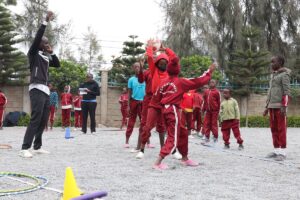
Kids at the Syokimau Hope Center feel free to play and just be themselves.
My first experience at the center caught me off guard.
Miriam, a little girl, came to greet me after playtime. She met me with a “Hi teacher,” and for a second I looked around to see if she was referring to someone else.
After a little chat with Miriam, I wondered to myself why she called me a teacher and not a photographer (because I had a camera) or even just by name.
But that was just the beginning. Later on, I heard several greetings of “Hello teacher Donna” from other kids, and they continued to refer to me as a teacher in the successive conversations we had.
Kelvin says he hopes that I don’t mind being referred to as a teacher. But I was curious to know why they called me a teacher even though that’s not my profession.
“These children refer to all Child Champions at the center as teachers, and this is the culture here,” Kelvin explains. “Be it a cook, cleaner, volunteer, security guard, or any adult that is granted access to the center, you become a teacher in the eyes of the kids.”
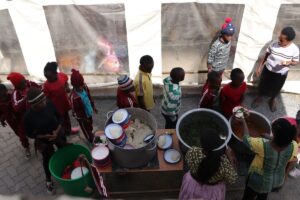
Kids at the Syokimau Hope Center line up to get a nutritious meal from their “teachers.”
He says kids at Syokimau know that adults at the Hope Center are their mentors, so they can teach and impart knowledge to them. And as a way of respect, the kids acknowledge that by calling all adults teachers.
Most of the registered kids live in poor neighborhoods around the area. Most of their parents work as casual laborers. Some work as house maids and watchmen, while others look for house cleaning and laundry jobs in the posh houses within Syokimau.
Unfortunately, some kids come from families where parents have lost hope, so they have none to give to the kids. In some homes, Kelvin says, the kids are exposed to violence by their parents or guardians, and this can make them think it is normal to exist in a violent environment.
Kids desperately need mentors to look up to.
“The kids come from different homes, with different types of hardness. But when they come into the center, the experience is different. There is peace, love, care and above all, they feel valued,” he says.
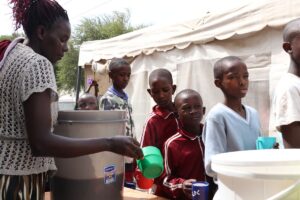
Most kids who first come to the Hope Center don’t have any dreams, but encouragement from Child Champions helps them believe they can achieve their dreams.
“Most kids came in not having any dreams, but currently [they all have dreams]. Big dreams. But all this is possible because we have urged all the adults at the center to treasure these kids and be role models to them. So, because the kids know they can learn something from the adults at the center, they refer to them as teachers.”
Because the kids completely trust the Hope Center staff, the Child Champions, together with the center management and church leadership, have prioritized making the center a safe space for them.
This means ensuring that all the staff members at the Hope Center are vetted to ascertain that they have a heart for the kids and no history of child abuse, as well as ensuring the play equipment within the center is safe for the kids.
Kelvin says a safe space is not just physical.
“When we say safe space, we mean that a child is free to run to us and freely share any struggles they are facing at home or in the schools they attend,” he says. “We have had scenarios where kids have issues with their relatives or even parents, and they choose to open up to us because they know they can trust us, and we can protect them.”
Beyond that, the Child Champions at the Hope Center also organize group sessions for children on protecting themselves. The kids are divided into different age groups for the sessions. They are then taught about their rights and responsibilities as children. They are also taught about consent and how to be firm yet polite with their responses.
“The number of Child Champions is not the same as the kids, so the champions cannot be there for all the kids when they are away from the center,” Kelvin says. “They only come in once a week. So we must teach them their rights, and how to protect them when we are not around.
“We are raising future leaders and they must be the best. But how can they be the best if we can’t train them to make the right decisions when they are still young?”
He says his hope is that every child registered at the Hope Center becomes an icon in whatever field they choose to venture into in the future.
Help us reach more kids, open more Hope Centers, and bring more hope to hard places with a gift to the OneChild Partners Fund!
We are accountable to the children we serve AND to our donors.
Our accountability to our donors is one of our highest priorities. Our goal is to use the funds entrusted to us as wise stewards. To do this requires continued monitoring of our fund distribution. OneChild is also a member in good standing with the Evangelical Council for Financial Accountability (ECFA)
